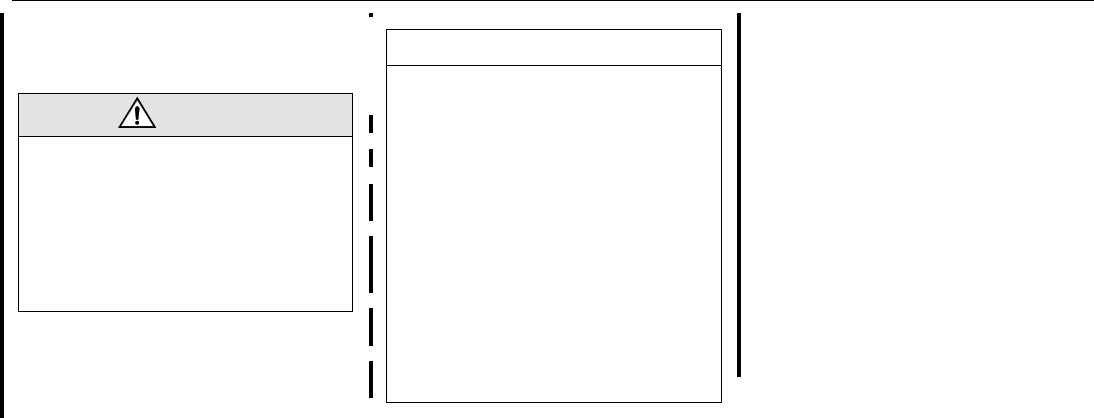
254 Car care
Automatic tire pressure
monitoring 3
The pressure monitoring system consists of
a sensor in each wheel, a detector in three
wheel housings and a receiver. The sensors
are located inside the wheels directly adja-
cent to the air valves.
Each tire, including the spare (if provided),
should be checked monthly when cold and
inflated to the inflation pressure recom-
mended by the vehicle manufacturer on the
vehicle placard or tire inflation pressure
label. (If your vehicle has tires of a different
size than the size indicated on the vehicle
placard or tire inflation pressure label, you
should consult the appropriate section of
this owner’s manual to determine the proper
tire inflation pressure, see page 306.) When
the low tire pressure telltale is illuminated,
one or more of your tires is significantly
underinflated.
You should stop and check your tires as
soon as possible, and inflate them to the
proper pressure. Driving on a significantly
under-inflated tire causes the tire to over-
heat and can lead to tire failure.
WARNING
The system is intended to aid the driver.
The driver is always ultimately responsi-
ble for ensuring that the tire pressure is
correct.
For optimum safety, economy and
comfort, check the tires regularly, even if
the automatic tire pressure monitoring
system has not issued an alarm
NOTICE
Great care must be taken when changing
tires so as not to damage the sensors that
are integrated in the valves.
• Remove the rear side first.
• Start removing the tire at a point oppo-
site the valve.
• Do not allow the tire removal equip-
ment to come closer than approx.
10 cm to the valve.
• Start and finish fitting approx. 4 in.
(10 cm) from the valve.
• Do not inflate the tire to above
700 kPa/100 psi.
93U SM 06.book Page 254 Friday, February 18, 2005 1:15 PM


















